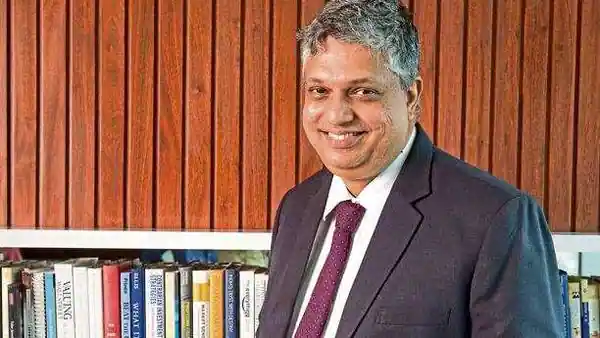India got freedom in 1947, but that does not make us free from our responsibilities., wants, needs. Recently I completed reading “The Psychology of Money” and I realized, financial freedom is not a one-dimensional goal. Just investing for financial freedom and reaching a certain amount will not make you financially free. Many times, we ask this question “does money buy happiness?” Maybe, maybe not, but money can certainly help you get financial freedom.
Say, you are not investing for financial freedom, because you have a certain social security safety net or pension, so once you retire, you will not need to work, which means you will have total control over your time, which means you will get financial freedom. You can be money-rich, time-poor, time-poor, money-rich, or time-rich and money-rich. Now our goal is to reach that state of being money rich and time reach. Where we can do what we want when we want and we have enough cash flow coming in to support that lifestyle.
How to Increase Retail Participation in Stock Market?
Think about 90s, when mobile phone penetration was a distant dream. But 2 things happened, the smart phone or internet enabled devices cost came down and then data pack prices became affordable. Drawing inspiration from that example, now that a lot of people have smart phone, apps like Groww, esPresso, Zerodha has made investing seamless and less expensive. But there is another problem, a lot of traders are being drawn in the market. We want prolonged retail participation. Traders will eventually die off as they lose most of their capital. And it is not matter of if, it is matter of when. I believe mutual fund and promotion of index funds can grow the base of retail investors who will be more sticky.
Right now the less than 5% Indians invest in market. But as more and more mutual fund investors come in, NPS investors grow retail participant will go up with time. These fintech companies need to figure out how to keep the traders alive with their capital and turn them into long term investor, that that will draw more retail guys in market.
How do I invest in financial freedom?
I started thinking about retirement in 2014. And I work in the private sector, So, pension is not something I consider as a safety net. And being from India, there is no social safety net either. On the bright side, this was a good motivation to look for alternatives.
Until now, I was stashing my cash in bank FDs, some mutual funds, but it became clear to me that fixed deposits will not help me to get financial freedom. Mainly because India to grow cannot remain high inflation thus high FD rate economy forever, And I understood this by looking at developed market FD rates. And secondly, inflation gradually eats away the purchasing power. So fixed income was not going to help me achieve financial freedom.
So, how do I invest in financial freedom? I looked at equity-linked products and financial assets which could generate cash flow. That means stocks, mutual funds, REITs, and INVITS are good options to generate regular cash flow. Stocks pay dividends at a regular interval ( as long as they are profitable and mature), REITs and Invits are mandated to distribute their earnings to the trust unitholders. Thus they generate regular income. And hopefully, a good franchise will beat inflation handsomely. And these are all mostly passive sources of income, which is just cherry on top.
How much money do you need for financial freedom?
While I started investing for financial freedom, but I did not know what was the end goal. To be honest I am not 100% sure if I still do. If you read the psychology of money, you will realize there is no fixed number for anyone. It is more about, generating enough cash flow through investment income, and living below means, spending less than you earn. Saving money is challenging for most, first, you need to calculate your spending, develop a habit of spending less than you make, and whatever figure you come up with that is pretty much your target income from your investments to achieve financial freedom.
This is what I did, I first calculated the regular household expenses, that has monthly bills to yearly insurance premiums. That gave me an idea of how much money I need to spend to sustain my current lifestyle. Considering there will be a 6% inflation, the expenses will double every 12 years. That means if my current expenses per month are 50k, in 24 years it will be 200000rs and in 36 years the expenses will be 400,000 rs. I know it sounds absurd but that is how compounding works.
anyway. there is no way I can chase a goal now that is 36 years away. So, my initial target was to meet current expenses and then some. Ideally, the cash flow should keep up with inflation over the years.
How can I get financial freedom fast?
Investing for financial freedom is the only way. And there are 2 factors, first, how much can you save to begin your compounding journey and second is time, how long can you keep your compounding machine running. One thing is you should start with is to save as much as you can instead of spending as much as you can. And there are many ways you can save.
There is no fast way of becoming financially free, although I can think of investing in crypto and that crypto reaching the moon, winning a massive jackpot and one more option would be inheriting enormous wealth. If you want to try your luck then alright otherwise start investing in financial products where your corpus is compounded tax-efficient way. I personally buy stocks, invest in mutual funds, invest in PPF, and invest in NPS. That is my long-term plan to get financial freedom.
Why do I want financial freedom?
Well like many of us I start working full-time when I was 22 and I would like to be financially independent in my mid-40s, so I can relax a bit while I still can do stuff. With a full-time job, it is difficult to get a long holiday and financial freedom to me is to having enough money to be self-sustainable. It is like having a garden that produces enough food that I do not need to go to market ever again, but it does not mean that I will not go to market if I want to. So, I may continue working but if I like I would be able to quit and live happily ever after doing whatever I like. Moreover, I do not want to think about how to cover my expenses when I do not have a regular income. Covid lockdown taught many of us that having just one job and one income stream and many EMIs is not a wise idea.
How do you get financial freedom in 5 years?
I honestly do not know, 5 years seems to be a really short time. I know one fact though in a 20 years window stocks ( read good quality businesses) return positive. That is based on historical figures though and you can give me an example of the Japanese market which most probably did not follow this rule. But Indian market is not a Japanese market. IT is growing, in terms of a lot of people are still living in poverty and they need to come out of poverty. As more people become middle class the market for good businesses will expand. That gives me confidence that Indian stocks will do well in the next 2 decades. Please note, I am not talking about trading stocks at all. If I bank on equity for the next 2 decades then I should do well. That is exactly why I am investing for financial freedom in equity assets,
Does money give freedom?
To some extent it does. Remember the first paycheck that you blew on something you really wanted to buy? It gave me freedom, I did not have to depend on anyone else anymore. Happiness and freedom, are not the same. Money gives security or financial freedom. Remember a paycheck is earned when we work for others, and we depend on that person or on the company. It creates a dependency. One way to get freedom is to generate enough cash to sustain a lifestyle and save for rainy days other than the regular job. So, I will say, yes money does give freedom. How much money or how much freedom will vary from person to person based on their commitments and expenses.
How much money is financially stable?
There is no definite amount to be financially stable. Like I have been mentioning it will depend on your expenses, your commitments, etc. Say you have kids who want to go to college. And you would like to pay for them. You do not know what will be the amount to finance them. there are things you have no control over and there are things you can do to mitigate challenges you foresee coming. Such as having medical insurance to mitigate health emergencies. Likewise, for your kids, you can open a PPF account that matures in 15 years, so if you start at right time by the time they are ready for college you will be ready with the fund. Or you can start a SIP in an index fund or Flexi cap fund to have enough cash. Anyway, these are very specific scenarios. You may not have kids but might have some other financial commitments, PPF or SIP will always work as long as you have set a target. AS long as you get all your commitments covered and enough cash flow to meet your regular expenses you’d feel financially stable. And your biggest asset will be being debt-free, My suggestion is never to take a loan to consume stuff that is depreciating, such as cars or mobile phones. Always live below mean and save as much as possible.This is working out great for me so far,

